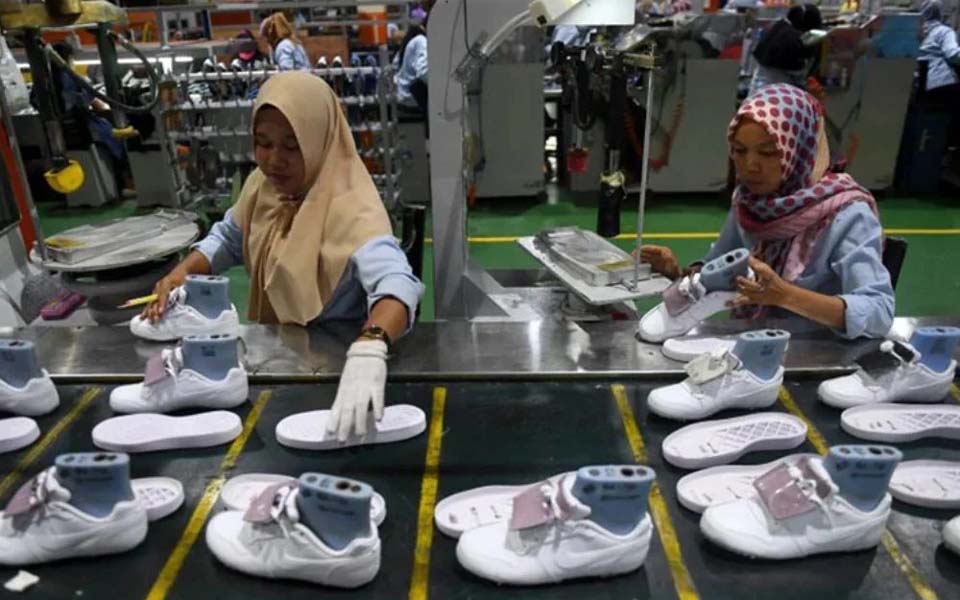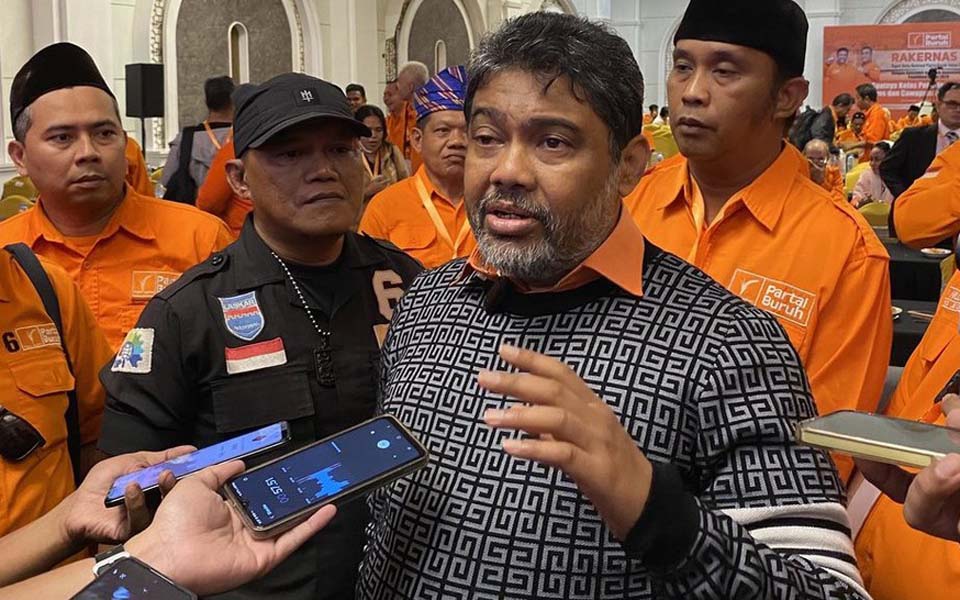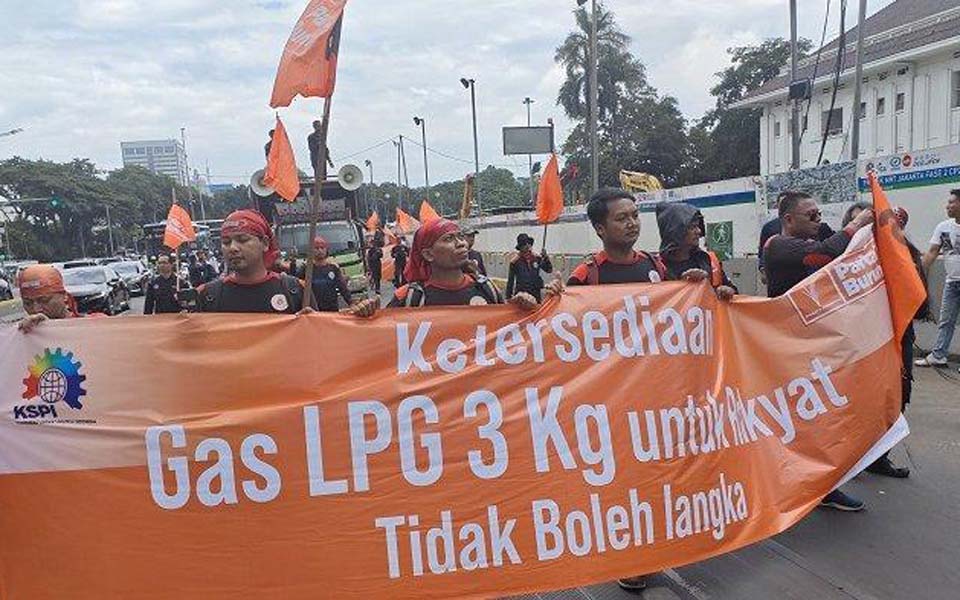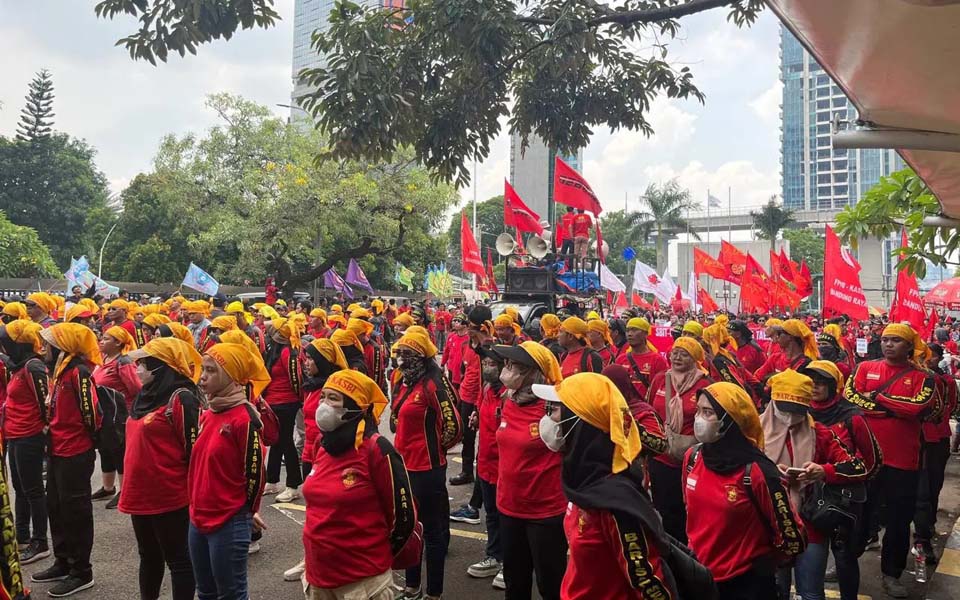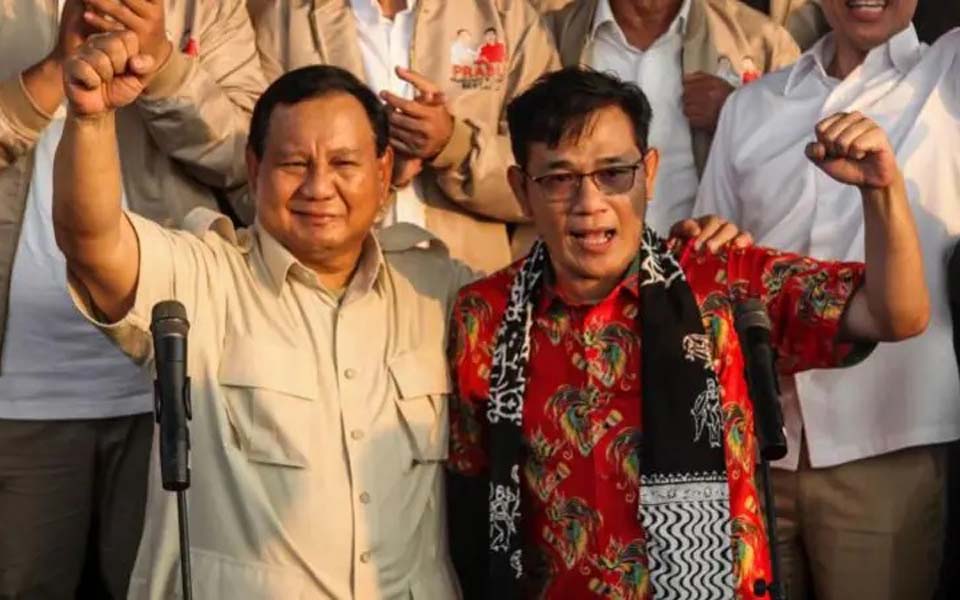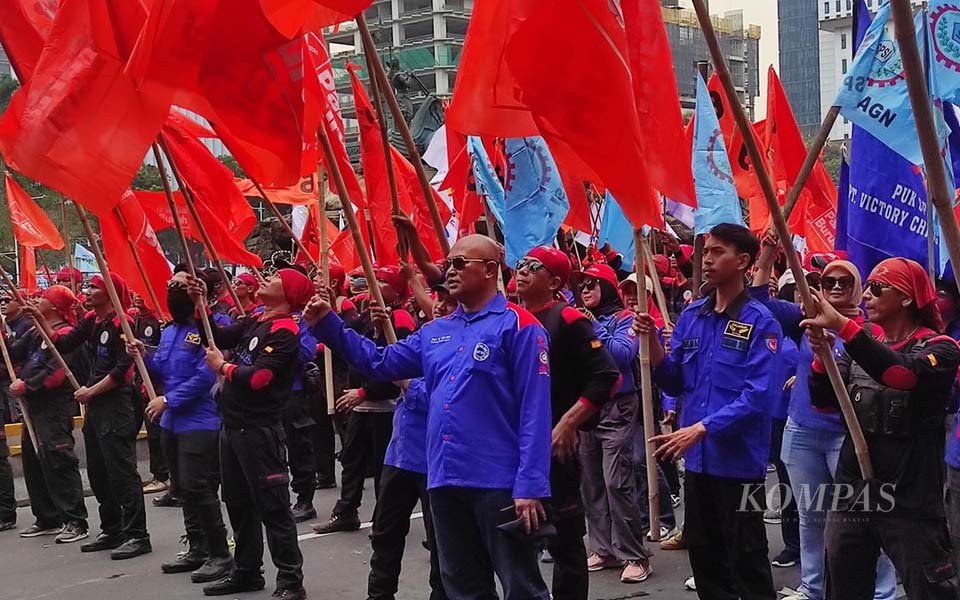Dita Indah Sari – The uproar over the planned revisions to the labour law has yet to subside. The character and process of the next round of deliberations of the revisions, which were agreed to in a meeting at the State Palace on April 7, have also been criticise by labour organisations. Workers have threatened to continue demonstrating even though President Susilo Bambang Yudhoyono has arbitrated “peace”.
Vice President Jusuf Kalla, who had pushed for the revisions from the start, has warned labour organisations of the “rules of the game” agreed to at the Palace. A number of circles persist in thinking that workers are complicating the situation.
Before too many accusations are leveled at workers, I would like to invite [readers] to understand their arguments. Their opposition is a reflection of the emergence of a new consciousness among workers. Workers are become more and more aware that the Indonesian government is the source of the sharpening decline in their living standards and job security.
For workers, this deadly draft reflects the government’s real position on labour affairs. The draft seriously erodes workers’ protection and job security and lays bare the real orientation of the Yudhoyono government. According to the draft, the era of the free market and liberalisation must be accompanied by flexible labour regulations. The aim being to attract investors and make them feel comfortable with investing capital in Indonesia. The unfortunate workers. “More flexible” means further reductions to severance pay. Dismissals are made easier. Contract work is extended. Outsourcing applied without limits.
I believe that Yudhoyono’s decision to cancel the deadly draft was not because he sides with workers. Yudhoyono took this position as a result of the strength of the pressure from street protests. I still believe that transferring its deliberation to a tripartite institution is merely a plan to expedite the revisions though a different door. Moreover, this also means that the government has actually rejected workers’ main demand – that the revisions be canceled.
As a result, workers view the tripartite institution pessimistically. Firstly, workers are clearly a minority within the body. The government and employers are in the same camp and are determined that the revisions go through. Secondly, the trade union representatives cannot be regarded as representing the voice of all workers, because not all trade unions are represented on the tripartite forum. Decisions by the tripartite body cannot possibly be binding on those trade unions that are not part of the institution.
Kalla’s explanation that this process will proceed despite continued demonstrations proves that the government wants to revise the labour law regardless of the consequences. The government feels there is no need to reorganise the tripartite body so that its composition is more democratic. Opposition by some trade unions is viewed as “violating the rules of the game” (that were obviously agreed to unilaterally) rather than accepting it as a warning that their concerns should considered.
An alternative solution
The revisions that are to be discussed are absolutely vital to workers. The labour law will determine whether workers’ futures are bright or gloomy. The solution that it is absolutely necessary is that they are more open.
For trade unions the urgent thing that must be carried out is consolidating and uniting their position. There needs to be one joint table where the various unions – both from the tripartite body and outside of it – can sit down and discuss the future protection of workers in this era of global capitalism.
Workers have been of one voice in rejected the revisions. Why then can they not be of one voice in discussing the alternatives? At the very least, such a large forum could set out the basic principles for the protection of workers, particularly on issues such as contract labour, outsourcing, severance pay and wages. If the forum is too broad to formulate detailed issues, let it be done though another mechanism. I am convinced that such a forum could be formed within a short period because trade unions are already waiting for a single place to set out a joint program.
It is important for trade unions to jointly establish a joint mechanism and corridor. Perhaps it will indeed consume some period of time, but the democratic process cannot be neglected. It is this process that will then determine to what extent trust in the Yudhoyono government can be rehabilitated.
The consequence of this – if this choice is followed – is that discussions on the revisions being facilitated by the government must be ended. All of us must return to a status quo position. Law Number 13/2003 on Labour should remain in force for the moment.
I also want to invite all trade union leaders to be involved in efforts to struggle for the protection of our domestic industries that are in the midst of bankruptcy. The high cost of economic resources and inefficiency are the root cause of this bankruptcy. The burden of illegal payments, corruption, the high cost of energy (diesel, electricity and gas), damaged infrastructure, interests rates going sky high, the dependency on imports and much more.
All of these problems must be part of the working classes’ struggle. It is no longer the time for trade unions to just be concerned about problems in their own sector. In the mist of the bankruptcy of this country, trade unions can no longer limit themselves, avoid their social and political responsibilities. Workers welfare will not be achieved without the involvement of workers in the Indonesian political struggle.
Dita Indah Sari is a labour activist from the People’s Democratic Party. She received the Ramon Magsaysay Award for Emergent Leadership for her work in 2003.
[Translated by James Balowski.]







